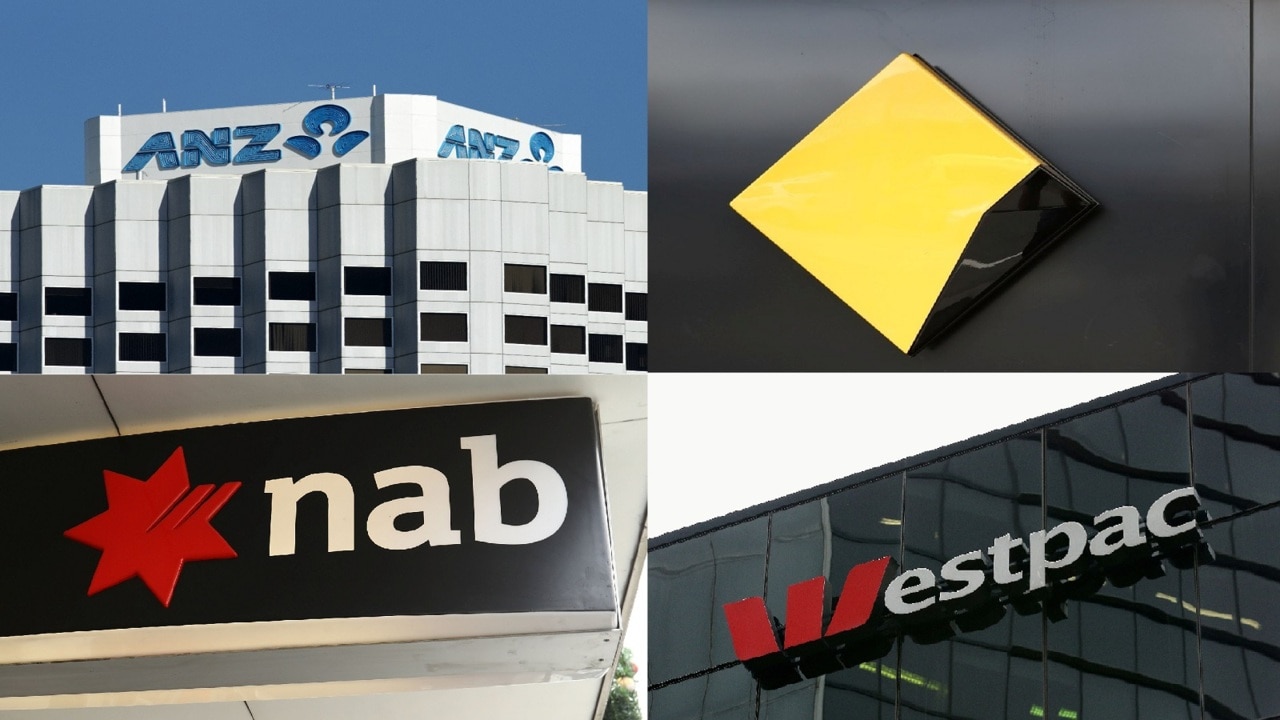Relief for big four banks as ACCC’s Rod Sims picks his battles

It has been an annus horribilis for banking but in the latest inquiry into the sector the regulator has a message that should come as a relief for the big four.
On home loan pricing, Australian Competition & Consumer Commission chief Rod Sims has ruled out forcing banks to lower the “loyalty tax” on long-term borrowers to be in line with the lower introductory rates used to attract new customers. Banks, already under pressure to explain why they have not passed on the full 75 basis point drop in the cash rate this year to borrowers, have been criticised for continuing to charge longstanding customers more.
“We are not saying in any way it is illegal; we are not in any way saying it is unethical,” Sims says. “We are just saying to consumers, be aware if you stay with one entity, be it banking, be it energy, over time and you’re not inquiring about better rates,” Sims says.
His position is intended to signal a lack of competition in the mortgage market, but not a regulator that is hot to trot to intervene.
READ MORE: ‘It’s up to you to get better deal,’ says ACCC chief | Rod Sims’s new unit to bring the heat
In electricity, in contrast, there has been heavy intervention in the market. “We could show you where a 45 per cent discount was a worse deal than zero discount, so it was completely confusing. The electricity industry let that get out of hand. I have a lot of evidence that they think so, too.”
Sims says that situation was not true of banking. “With banking we are saying to customers ‘look, you might save a few basis points if you ring them up and say I’m thinking of moving’.”
Where Sims could well call for intervention is in his upcoming recommendations on water trading in the Murray-Darling Basin.
Australia leads the world with the most advanced market but in recent months, exacerbated by the drought, emotions have run hot, with accusations of unconscionable conduct by water hoarders as prices have skyrocketed. The ACCC spent November consulting throughout the Murray-Darling basin. “I guess the issue is: has it got more sophisticated than the nature of the market can handle?” Sims asks.
He contrasts the water market with the foreign exchange market, where he says an arbitrage play would typically be a sign that the market is working well. “Pardon the pun — the water market is pretty illiquid, because it is really 40 markets connected by rivers when they flow or don’t flow. The question we have to address is, is it too thin a market to cater for how it now works?”
Sims is unmoved by the politics. “We are too early into this to indicate what we might recommend to government, but I don’t think we will be constrained by sovereign risk issues. Given how we understand how this market works, we will try to solve what is the right way it should work.”
Digital review
Sims finishes the year delighted, he says, with the government’s response to his digital platforms review. He bats off any criticism that his central recommendation — a “voluntary” code between the likes of Google and Facebook and traditional media — will be ineffective, given the form of big tech.
“I think there’s been a misunderstanding here. The word voluntary underplays that it will be enforceable and there’s an imperative to get something done because there is a big stick at the end of it.” That big stick is the threat of a government-mandated code by next November if the carve-up of the rivers of gold is not sorted by then.
Sims has healthy doubts about digital. He famously would not have an Amazon Alexa at home, he mistrusts Google’s assurances on Fitbit data as part of its $2.1bn takeover, and he has taken Google to court this year over alleged misleading of customers on the treatment of their location data. By the release of the draft report in July, Sims had five in-depth investigations running into big tech.
Sims is looking to shift the dial in consumer protection, with a far greater weight on fairness that will alarm business. Sims argues that judges have understandably interpreted unconscionable conduct narrowly, at a time when society wants to deal with what is unfair.
“Let’s say on a digital platform that a scam is being run that Facebook knows about and they don’t do anything to take it down. Now is that unconscionable? No, it would not amount to unconscionable. Is it unfair? Well, people are suffering detriment. Why don’t you take it down?
“If what we’re worried about is customers being treated unfairly, my view is, don’t bring in a whole lot of laws. I worry we’re trying to legislate for particular things when, if there’s behaviour we don’t want, just make that illegal. If what we’re trying to do is stamp out unfairness in the marketplace, why don’t we just say so?”
Any move to a threshold of fairness would be seen as a dramatic change in business and could lead to the same sort of rearguard action as the controversial Section 46 “effects” test on market power. “Well that was irrational as well,” Sims says. “I understand that would be the reaction from many, but I don’t think it is. I don’t think business does itself any favours by opposing everything that comes along. My message to them is, if you can see the wider benefit, just endorse it even though it might not be in your particular interest, because then you have more credibility for opposing things when there are really things that should not happen.”
ANZ cartel case
One of the most contentious actions under way is the regulator’s criminal cartel conduct case against ANZ, Citi and Deutsche on alleged syndicate behaviour. Under scrutiny is the granting of immunity to JPMorgan, whose executives, along with ACCC personnel, are being grilled. “Obviously with cartels you are talking about covert behaviour where it is hard to work out what is going on. So every competition regulator around the world that we would identify with has these immunity programs.”
Whatever the regulator achieves, he can be sure of one thing: more complaints about petrol. Why is there no big stick for petrol pricing? “Good question,” Sims grins. “It is the dominant criticism, every time we announce something there is always a Twitter feed of ‘well that’s hopeless — what are you doing about petrol?’ ” Sims says people, including some members of parliament, misunderstand the law. “People understandably say ‘I saw signs for $1.20 three days ago and now it’s $1.50. The world oil price hasn’t gone up, I’m getting ripped off, what’s the ACCC doing about it?’
“Well firstly, that form of ripping off is not illegal. When the price is at the bottom of the cycle, it is an unusually good deal and when it is at the top of the cycle, it is a lousy deal, so if you average it through the year, are petrol prices too high?
“You can quibble about 1c or 2c, 3c, but that is all you’re talking about. You are not getting ripped off by 30c. You are if you buy at the top of the cycle and we have our website to help people avoid that.”
Ticky Fullerton is Sky News Business Editor and co-anchor of Business Weekend, Sundays at 11am on Sky News Australia.


